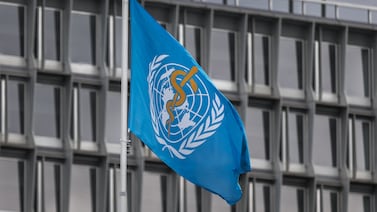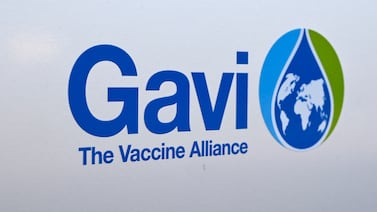Public health, explained: Sign up to receive Healthbeat’s free Atlanta newsletter here.
After a two-day meeting marked by contention and confusion, a federal vaccine committee voted in Atlanta on Friday to allow people to decide for themselves whether to get a Covid shot – without a prescription.
The decision by the Advisory Committee on Immunization Practices will likely make it easier for Georgians to get the shots than it has been over the past month, after the Food and Drug Administration narrowed eligibility, forcing many to get a prescription. Since Georgia law relies on the ACIP recommendations, Georgians age 6 months and older should now be able to get the shots without prescriptions.
“The good news is anyone is allowed to get this vaccine,” Dr. Paul Offit, director of the Vaccine Education Center at Children’s Hospital of Pennsylvania, said during a media briefing after the meeting. “The bad news is no one is encouraged to get it.”
Under this recommendation, the shots should be covered by private insurance and federal programs like Medicaid, the Children’s Health Insurance Plan, Medicare, and Affordable Care Act marketplace plans.
Even so, America’s Health Insurance Plans, which represents many private insurers, excluding United Healthcare, said before the meeting its members would continue to cover all vaccines that were recommended as of Sept. 1 through the end of next year.
ACIP, which advises the Centers for Disease Control and Prevention, suggested the agency substantially revise its vaccine information statements provided to patients to say evidence for the protection provided by the shots is “low quality,” that the vaccines come with potential serious risks, and other information that many scientists say lacks evidence. The ACIP resolutions still must be approved by acting CDC Director Jim O’Neill or Health and Human Services Secretary Robert F. Kennedy Jr.
The Covid working group chairman, MIT operations management professor Restef Levi, relied on opinions rather than facts and cherrypicked studies to support his position that the vaccine information statement needs to be revised, Jesse Goodman, a professor of infectious diseases at Georgetown University and a former FDA chief scientist, said at a media briefing after the meeting.
The committee narrowly voted against encouraging state and local governments to require a prescription for the shot, with Chairman Martin Kulldorff casting a tie-breaking vote.
The committee deferred votes on recommendations for Covid shots for pregnant women, but didn’t exclude them from its approved guidance.
Meanwhile, members voted to change its recommendation on the first dose of the childhood measles, mumps, rubella, and varicella (chickenpox) vaccine and deferred a decision on whether to end the recommendation of a hepatitis B vaccine at birth.
The chaotic meeting began Thursday with 12 new committee members picked by Kennedy to align with his anti-vaccine views. He had removed the previous 17 expert members. Representatives of major medical societies, including the American Academy of Pediatrics, have criticized the changes as undermining the scientific rigor of the process.
Dr. Jason Goldman, president of the American College of Physicians, urged the committee to return to the evidence-to-recommendation framework and other procedures ACIP has previously used to evaluate evidence for vaccines.
“We’re concerned about how vaccine recommendations are being developed by this new panel. Data is being selectively used to justify specific conclusions rather than considering all of the available evidence, and this lack of transparency diminishes trust, introduces bias and raises doubts,” Atlanta physician Sandra Fryhofer told committee members during the meeting on behalf of the American Medical Association.
The committee also voted to recommend that the first dose of the childhood measles, mumps, and rubella vaccine be given separately from the varicella (chickenpox) vaccine.
That change is expected to have limited impact because about 85% of American children already receive the first dose of the MMR and varicella shots separately, with only about 15% receiving the combination shot.
The combination shot eliminates the need for two shots but comes with a small increased risk of a febrile seizure – an issue that became the centerpiece of Thursday’s debate.
The CDC formerly recommended that the first shot in the series be the single MMR shot – but it gave parents the option to get the combined shot after counseling about the elevated risk of febrile seizure from the pediatrician.
The meeting served as an indicator of how the United States may handle vaccine policy going forward, with many members casting doubt on the safety of vaccines that have been used for years.
The committee established two new working groups, one focused on vaccines and pregnancy and the second focused on the childhood vaccine schedule.
The ACIP decided to postpone a vote on whether to end the universal recommendation of the hepatitis B vaccine that is typically administered within the first 24 hours of birth. The practice of vaccinating newborns before they are discharged from the hospital, introduced in 2005, has dramatically reduced the number of cases of hepatitis B in infants in the United States, according to data presented by Dr. Adam Langer, the associate director for science for the National Center for HIV, Viral Hepatitis, STD, and TB Prevention
Meanwhile, the committee unanimously voted to recommend that all pregnant women be screened for hepatitis B, a practice the CDC already recommended.
Rebecca Grapevine is a reporter covering public health in Atlanta for Healthbeat. Contact Rebecca at rgrapevine@healthbeat.org.






